Nara, Japan
The moment I arrive at Nara JR Station, I could a stark difference in atmosphere compared to Kyoto. Surrounded by mountains shrouded by fog, Nara seemed a lot more solemn and ancient than Kyoto.
The city then known as Heijo, used to be the capital of Japan before the move to Heian-kyo, present-day Kyoto. The city was much older than Kyoto. In fact, it just commemorated its 1300th Anniversary of Nara Capital a few months ago.
Even the architecture speaks of an earlier era with distinguishable Chinese influence seen in Kōfuku-ji 興福寺, a former family temple built in 710 AD at the same time as the establishment of the capital of the Fujiwara clan, a powerful political family clan during the Nara and Heian period. The five storey pagoda of Kofukuji is Japan’s second tallest pagoda, behind Kyoto’s Toji temple’s pagoda.
One iconic feature in Nara is the renowned Nara deer. These surprisingly tame deer are allowed roam freely around Nara Park as they were considered to be messengers of gods. We witnessed one took its message into a shop to the dismay of a shop owner.
While they looked adorable and innocent, they tend to defecate all around the park, so watch out! Those tiny brown balls on the floor are not seeds!
Located near Kofukuji is an imposing western style standalone building. This huge structure, built in the Meiji period was designated as an Important Cultural Property in Japan and housed the Nara National Museum. Unfortunately, the museum was closed when we visited.
To the northeast of Nara National Museum is Todaiji 東大寺, the main reason why I wanted to visit Nara. The Todaiji, the Great Eastern Temple is one of most famous temples in Nara and whole of the Japan.
The original structure dates back to the 8th century and it was constructed under the orders of Emperor Shomu (r. 724-749). Apparently the construction of this great temple is not solely for monumental purposes but rather to raise the morale of the people during that era.
The temple was constructed with the cooperation of the monks and many Japanese people hence it became more than just a temple or monument but a testimony to the immense efforts by the people who made the realization of this temple possible.
On the other hand, it could be part of the emperor’s effort to keep his power by relying on Buddhism. Furthermore, the construction almost left the country bankrupt as it had consumed most of Japan’s bronze production for several years.
However, the temple has an unlucky history as it was burnt down or badly damaged twice at least twice in 1180 and in 1567 due to civil wars, earthquakes and fires. The current structure dates back to the 1709 and is only two-thirds the size of the original.
One interesting feature about the Todaiji temple is a column with a small opening. It was amusing to see grown ups trying to squeeze through the column.
There are many more places to visit in Nara including the Kasuga Taisha and Yakamiya-jinja or the ancient Horyu-ji located around Nara. Our sightseeing tour was cut short by the rain.

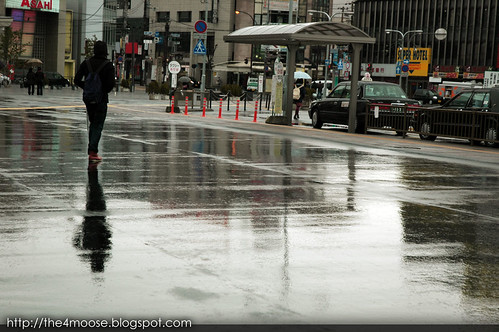
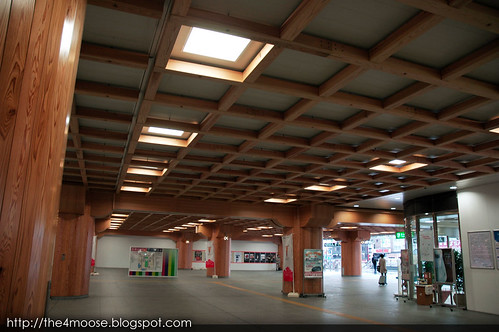
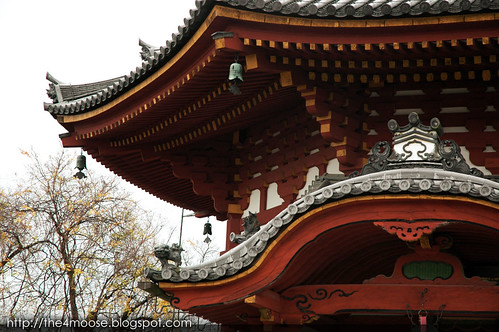
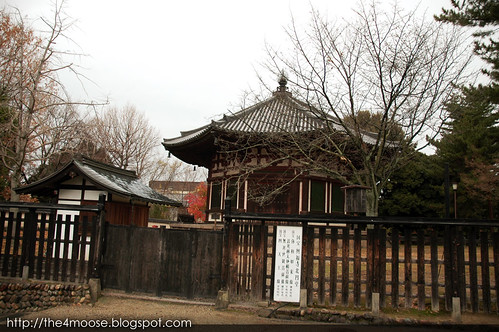
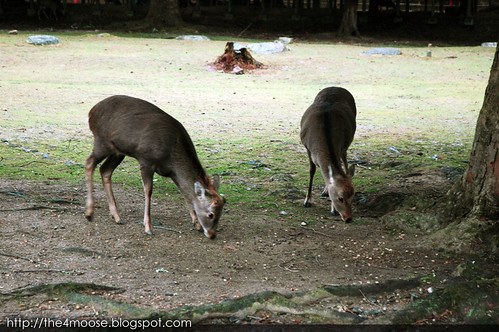
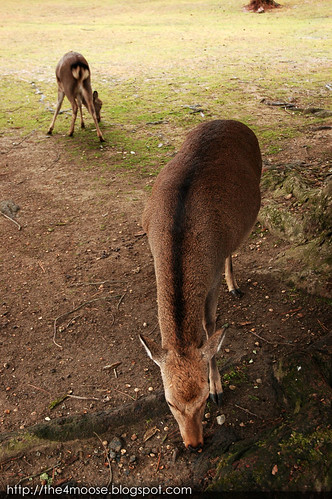
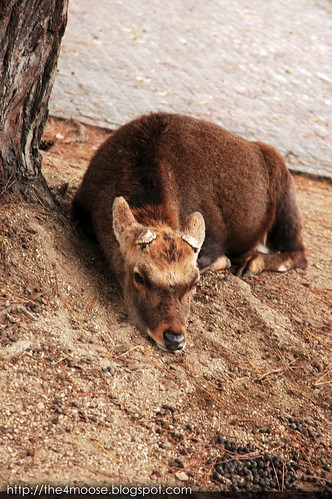
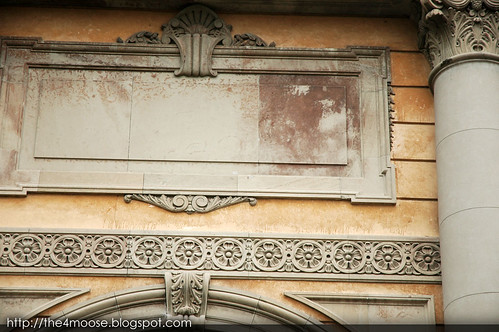
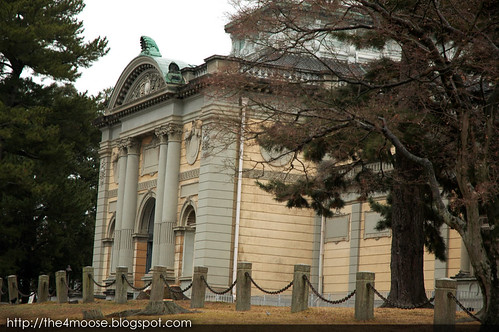
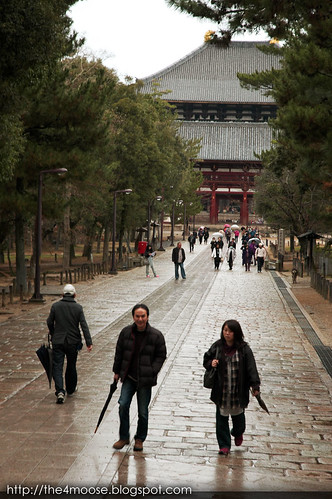
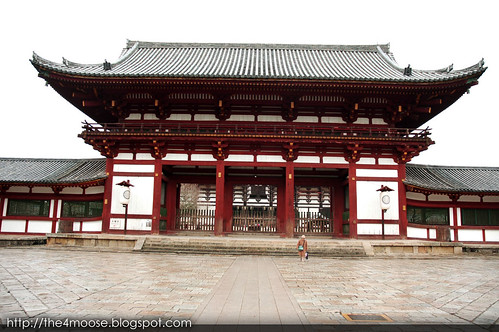
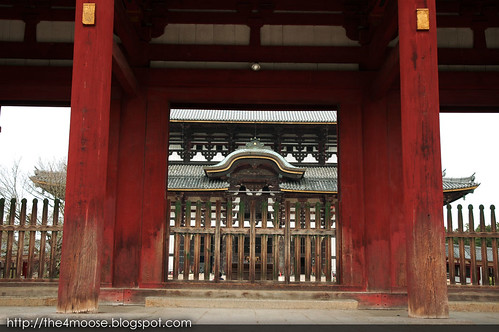
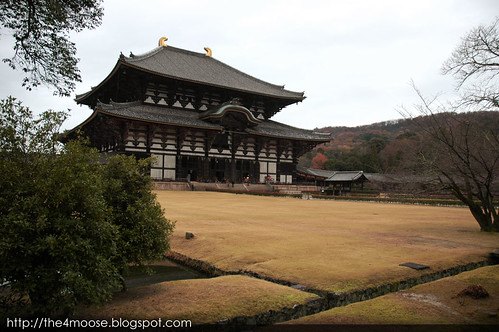
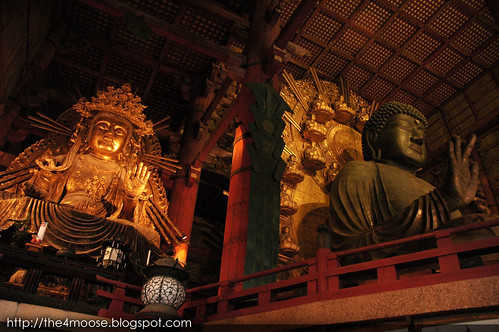
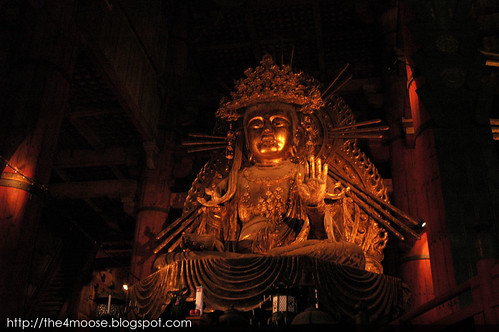
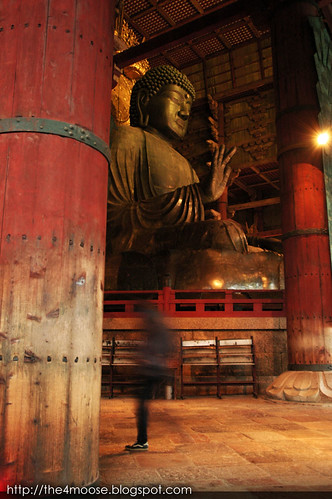
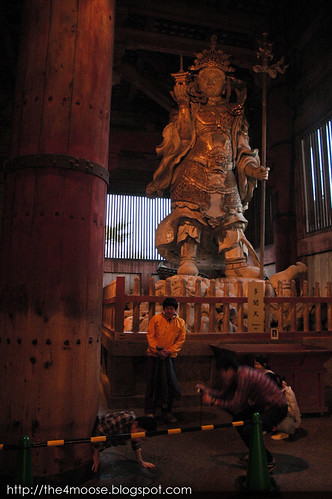
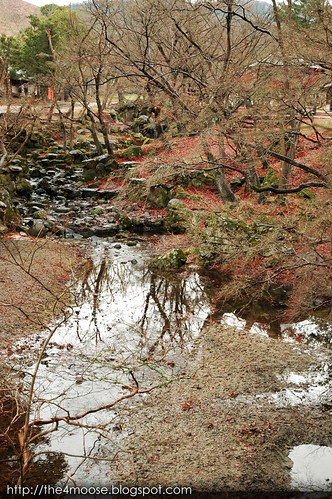
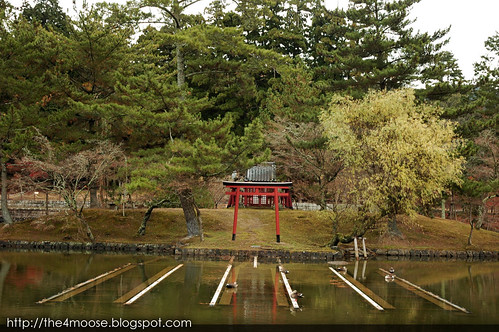














0 comments:
Post a Comment
Note: Only a member of this blog may post a comment.